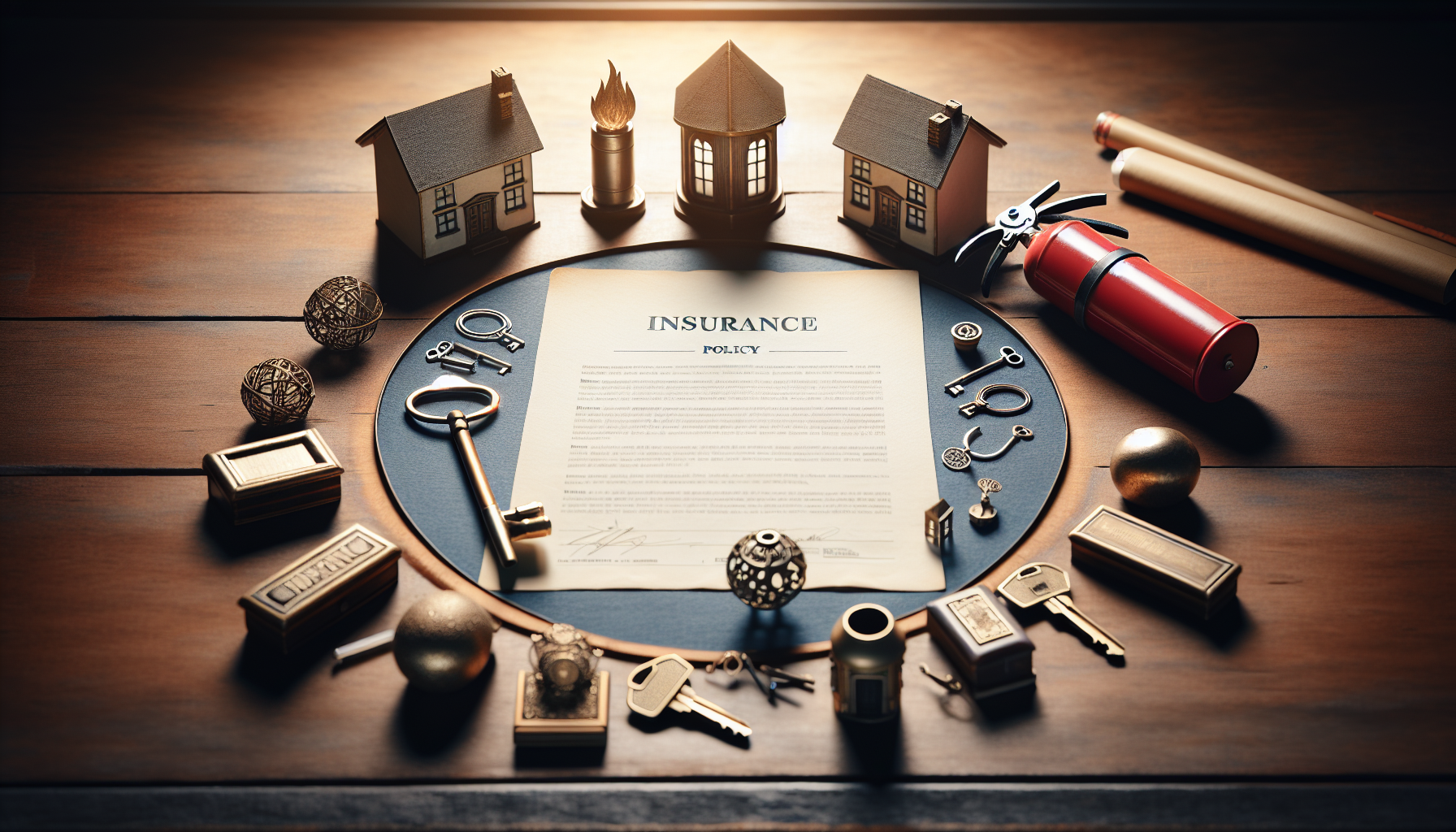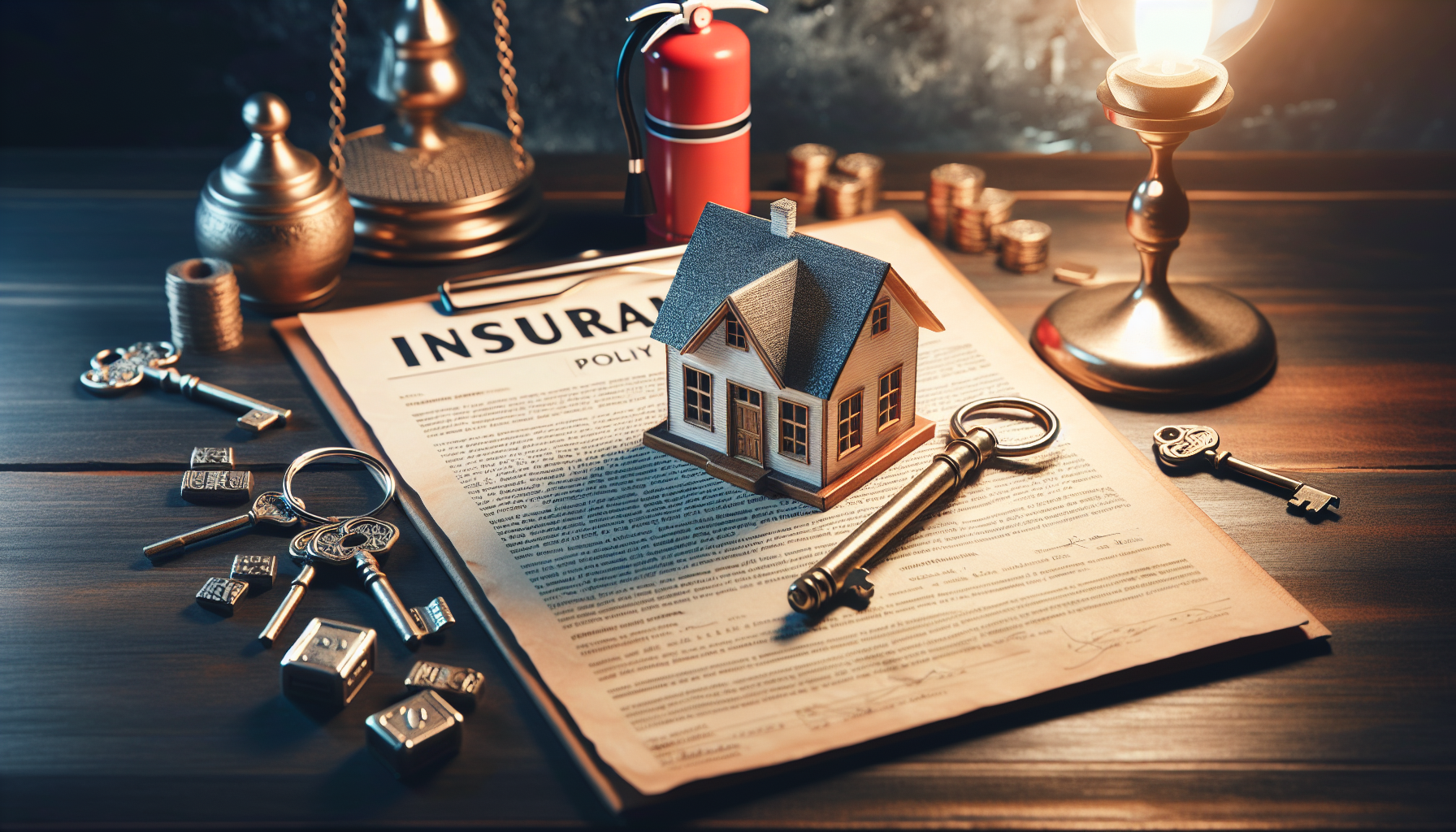Have you ever wondered what protection a standard fire policy offers? You’re not alone in your curiosity about this important topic. Understanding what’s included in this kind of policy can not only help you feel more secure but also guide you when making decisions about your insurance needs.

Understanding Fire Insurance
Fire insurance serves as a safety net for homeowners and businesses alike. It protects you from losses that occur due to fire damage. The risks of fire are not something to be taken lightly. Consider all the items in your home or business that carry both sentimental and monetary value. A fire can erase everything in mere moments. That’s where a fire policy steps in: it provides peace of mind and security.
What is Included in a Standard Fire Policy?
A standard fire policy typically includes several essentials. It may cover the physical structure of your home, as well as your personal belongings. Here’s a clearer breakdown:
Dwelling Coverage
Dwelling coverage protects the main structure of your home. This includes the walls, roof, and built-in appliances. If a fire damages or destroys your house, dwelling coverage helps you repair or rebuild. The amount of coverage you need often depends on the home’s replacement costs and your policy limitations.
Personal Property Coverage
Your belongings deserve protection too. Personal property coverage extends to items inside your home, like furniture, electronics, and clothing. If a fire damages or destroys these items, this part of your policy can help replace them. Make a list of your possessions, ideally with photographs, to ease the claims process.
Additional Living Expenses
What happens if your home becomes uninhabitable due to fire damage? That’s where additional living expenses (ALE) coverage comes in. This part of the policy helps you with costs such as temporary housing, meals, and other necessary expenses while your home is being repaired.
Liability Coverage
Liability coverage is another critical element. If someone is injured on your property due to a fire, this coverage helps protect you from potential lawsuits. It can cover medical costs and legal fees, giving you peace of mind in case of unforeseen incidents.
Exclusions in Fire Policies
While understanding what a standard fire policy includes is vital, it’s equally important to know what it does not cover. This includes items like:
Negligence
Policies generally do not cover damages from negligence. If a fire starts because of a failure to maintain electrical systems, for instance, your claim might get denied.
Earthquake and Flood Damage
Most standard fire policies exclude damage from earthquakes and flooding. In Florida, where hurricanes and floods are common, consider additional coverage options for these specific risks.
Intentional Acts
If the damage results from intentional acts or arson, the policy won’t cover it. This is crucial to keep in mind since such actions carry severe legal consequences.
Fire Policy Limits and Deductibles
Understanding limits and deductibles is essential when considering a fire policy.
Coverage Limits
Your policy has coverage limits which indicate the maximum amount your insurance company will pay in claims. These limits can vary significantly based on your specific policy. Review them carefully to ensure they meet your needs.
Deductibles
A deductible is the amount you’ll have to pay out of pocket before your coverage kicks in. Choosing a higher deductible usually lowers your premium, while a lower deductible raises it. Weigh these options carefully to find a balance that fits your situation.
Specialized Fire Policies
While the standard fire policy provides a solid foundation, specialized fire policies offer enhancements that may better meet your needs.
Broad Form Fire Policy
A broad form policy offers more extensive coverage. Besides fire, it may encompass hazards like lightning, windstorm, and vandalism. This type of policy can provide additional peace of mind, especially if you live in a region prone to various environmental risks.
Replacement Cost vs. Actual Cash Value
When settling claims, insurers often consider replacement cost and actual cash value. Replacement cost pays what it would cost to replace an item at current prices. In contrast, actual cash value accounts for depreciation, meaning it pays the item’s current value minus depreciation. Understand these differences as they can greatly affect your compensation.

The Claims Process
So, what should you do if your property suffers fire damage? The claims process typically includes several steps:
Notify Your Insurance Company
Contact your insurer promptly after the damage occurs. They can guide you on the next steps, and the sooner you notify them, the quicker you can address the situation.
Document the Damage
Thoroughly document all damage, including photographs and item lists. This documentation will be essential in supporting your claim.
Meet with an Adjuster
Insurance adjusters assess fire damage to your property. They will visit your home to evaluate the situation and estimate repair costs. Their assessment plays a critical role in determining your settlement.
Filing the Claim
Once the assessment is complete, you’ll need to file your claim officially. Be prepared to provide all necessary documentation and details about the incident.
Review Your Settlement
After you file your claim, your insurance company will review it and provide a settlement offer. Don’t hesitate to discuss this amount with your public adjuster at Otero Property Adjusting & Appraisals if you think it’s insufficient. They can negotiate on your behalf to ensure you receive fair compensation.
The Role of Public Adjusters
As you navigate the complexities of your fire claim, consider the benefits of hiring a public adjuster.
Advocating for You
Public adjusters work solely for policyholders, not insurance companies. They are trained and licensed professionals who understand the ins and outs of insurance policies. Their role is to advocate for you, helping you maximize your claim and securing the compensation you deserve.
Claim Preparation
Preparing a claim involves understanding your policy thoroughly and collecting extensive documentation. A public adjuster takes the burden off your shoulders, ensuring your claim is presented correctly and comprehensively.
Long-Term Support
Even after your claim, public adjusters can offer ongoing support. Whether you have questions about your coverage or need assistance with future claims, they can be invaluable resources.
Why Choose Otero Property Adjusting & Appraisals?
Choosing the right public adjuster can make all the difference in ensuring you receive a fair settlement after a fire loss. At Otero Property Adjusting & Appraisals, located in Pensacola, FL, our team works tirelessly to advocate for homeowners across Florida.
Our Commitment to You
We pride ourselves on a straightforward approach. Our initial inspection of your property damage comes at no cost to you. There are no hidden fees or obligations. This means you can initiate the claims process without worrying about upfront costs.
Experience You Can Trust
With our years of combined experience, we have the knowledge and expertise necessary to navigate the claims process efficiently. Regardless of the damage your property has suffered – be it from hurricanes, water leaks, mold, or fire – we are committed to helping you every step of the way.
No Win, No Fee
Our payment structure is simple: we only get paid when you do. This means your interests are our priority. Our highly skilled public adjusters dedicate themselves to ensuring you receive every dollar you’re entitled to under your policy.
Conclusion
Understanding a standard fire policy enables you to protect your home and your belongings effectively. Knowing what’s included and excluded, learning the claims process, and recognizing the role of a public adjuster can empower you during a challenging time.
If you ever find yourself facing the aftermath of a fire, consider partnering with Otero Property Adjusting & Appraisals. Our dedicated team stands ready to advocate for you. Your peace of mind is important, and having the right partners can help you regain that sense of security faster.
If you’re in Florida and need assistance, reach out to Otero at (850) 285-0405 or visit our website at oteroadjusting.com. We’re here to help you recover and rebuild, ensuring you get the compensation you rightfully deserve.


